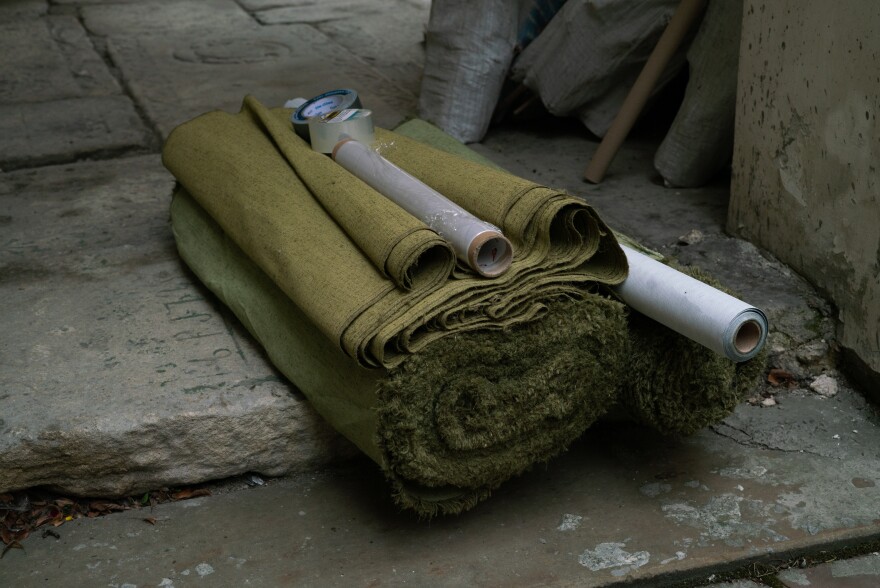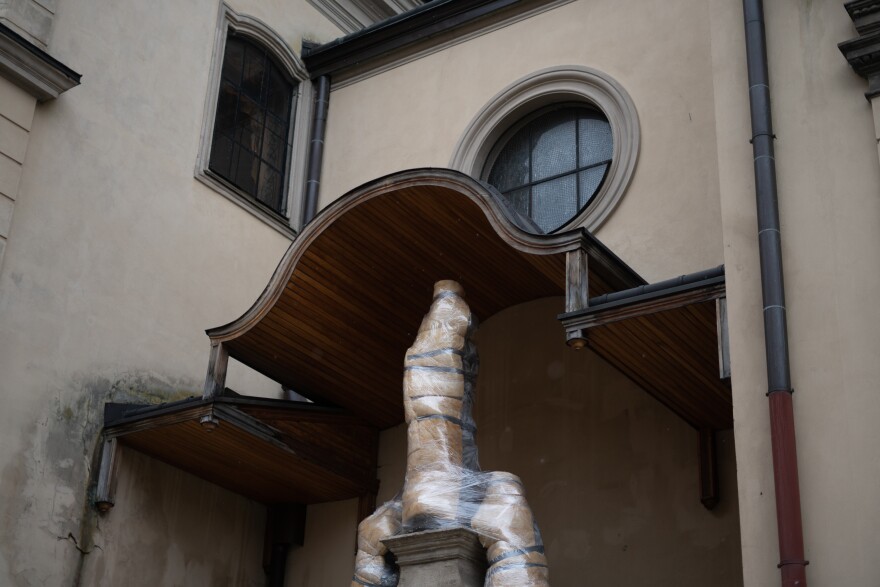Liliya Onyschenko is standing in a 16th century cobblestone square, bracing herself against the cold, scrolling through bad news on her phone — and cursing Russian President Vladimir Putin.
A 19th century wooden church flattened in northern Ukraine. A folk museum shelled. A library with rare books destroyed. Onyschenko rattles off a list of Ukrainian sites damaged by Russian attacks. On top of the human losses across her country, the list makes Onyschenko really angry.
"I've devoted my life to protecting these monuments," says Onyschenko, who is the head of historical preservation in Lviv, the biggest city in western Ukraine.
Lviv's old quarter is a UNESCO World Heritage Site. Parts of it date back to the 5th century. There's a church on almost every street, and architecture from the medieval and Renaissance periods.

Onyschenko took NPR on a tour of what she's doing to save all of it.
In the courtyard of an Armenian church, Onyschenko's team is putting up scaffolding around a giant Baroque altarpiece.
"Jesus has moved for the moment! Jesus has left," Alexander Ruchko says in a rare moment of levity. Ruchko used to be a tour guide in Lviv. Now he's helping to disassemble and stash away all the artifacts he used to tell tourists about.
Statues of Jesus Christ have been taken down from their crosses across the city. Paintings have been removed from museum walls. They've all been hidden for safekeeping in secret locations underground.

Vitaliy Kulyk used to run Lviv's tourist office. It's now a welcome center for war evacuees. Kulyk has been working 12-hour days, walking Lviv's streets and taking stock of metal statues in city squares — Neptune with his trident, the Ukrainian poet Taras Shevchenko with his arm raised — trying to figure out what Russian bombs could do to them.
"Usually, the bombs are making the high temperature, and that burns everything around," Kulyk explains. He's worried that Lviv's prized statues could melt if bombed by the Russians.
So his team went to the local equivalent of Home Depot, bought fireproof material and wrapped the statues up — right on their pedestals.

Meanwhile, at Lviv's Roman Catholic cathedral, a crane lifts workers up to soaring stained glass windows, to cover them with plywood and aluminum.
These are areas that survived occupation by the Nazis and the Soviets. The front lines in World War II moved back and forth across Lviv.
Kulyk hopes that won't be the case in this war.
"Our army is doing very well, so I think Russians won't get here," he says. "But I have a Ukrainian idiom: 'Expect better but be prepared for the worst.'"
Olena Lysenko contributed to this report.
Copyright 2023 NPR. To see more, visit https://www.npr.org.









